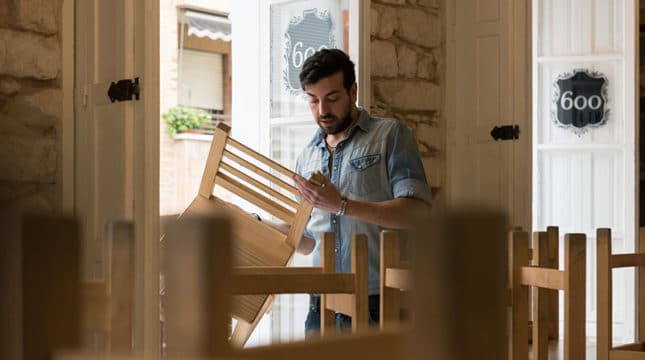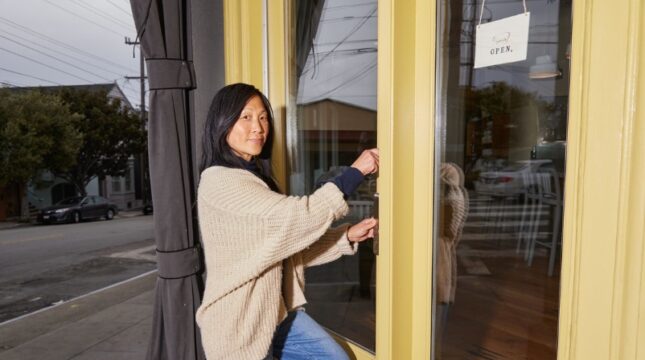What is a food handlers card?
A food handlers card, also known as a food handlers license or food handlers certificate, is a certification that shows local health departments you know how to safely handle and serve food to the public.
Most states require it. Without one you could face fines and other penalties from your local health department.
How do you get a food handlers card?
Most food handlers license programs follow a similar format: You participate in a food safety course and pass a test.
That might sound like a big time commitment, but getting a license is usually fast, easy and inexpensive.
Courses typically take about two hours to complete and cost less than $20. Many are offered online and in-person, and both in English and Spanish.
Multiple companies offer courses on food safety, and each one is a little different. But all training programs provide instruction on:
- Basic food safety knowledge
- Proper food storage practices
- Appropriate personal hygiene practices
- Allergens
- Cross-contamination
- Proper cleaning procedures
After you take a course, you can typically take the final exam up to three times. If you do not pass the exam after three retakes, you need to retake the course before you can retake the test.
Once you pass the exam, you’ll get your food handlers certificate.
Before selecting a food handler training course, ensure it’s approved in the state where your food service business operates, as well as the ANSI National Accreditation Board (“ANAB-accredited”). Some popular options include:
- Always Food Safe. This company offers several training options for different types of employees. Courses are only available online in video format. The cost for the food handler training is $10. You can print your food handlers certificate as soon as you pass the exam.
- ServSafe. ServSafe courses are among the most popular online and in-person food safety classes in the United States. After you complete the food handlers test, you can download and print your e-certificate from the company’s website.
How long does a food handlers card last?
Some licenses are good forever, while others need to be renewed every few years, depending on the course you take.
Who needs a food handlers license?
Most states require that at least one employee in every food service business has a license.
Some require all employees who handle food to get a license.
Other states require that at least one person with a license needs to be on duty during business hours, but they don’t require all employees to be licensed.
Even if your state or local government doesn’t require everyone to get food handlers certification, you must train all employees on proper food handling to avoid mishaps that could make someone sick.
Licensing requirements vary by state.
For example, New York requires businesses that handle or prepare food to have a licensed food operations supervisor on duty during business hours. But all employees aren’t required to have a food handler card.
In contrast, California requires any employee who handles food to have a license — and in some cases, the state even requires a food manager license.
In general, food service businesses in most states must obtain a food handlers license within 30 to 90 days of opening. If you live in an area that requires all food workers to have a license, it’s important to know how soon each person needs to complete their training and pass the licensing exam after their hire date.
Sometimes, state and local requirements are different. If they have different guidelines, stick with the more stringent regulations to avoid potential penalties. Check with your local health department for specific details that apply to your business.
Benefits of a food handlers license
Yes, having a food handlers card is generally required by law. But the benefits go beyond avoiding fines and other penalties — they can help your business grow.
- Boosts customer trust. A food handler license demonstrates your commitment to food safety and hygiene.
- Ensures legal compliance. Your eatery can bring in business or grow if it’s shut down for violations. A food handlers card helps prevent fines and penalties for not meeting health department requirements.
- Improves food quality and safety. An educated staff can better prepare, handle and store food safely, reducing the risk of foodborne illnesses. This translates to fewer customer complaints and better reviews for your restaurant.
- Expands business opportunities. Some catering contracts or other food platforms require proof of food safety training. Having a certified staff makes securing these opportunities easier.
- Boosts employee efficiency. When employees are properly trained, they can work more confidently and efficiently. This leads to fewer workplace accidents and injuries and cost savings.
Understanding basic food safety protocols is crucial to keeping your customers healthy, happy, and returning for more.
A lawsuit related to foodborne illness could be a major setback for your business and it’s caused many businesses to close for good.
After all, no one wants to eat at a restaurant known for its history of food poisoning. A food handlers license shows you’re serious about your business.





